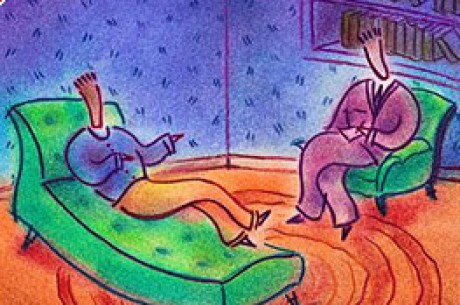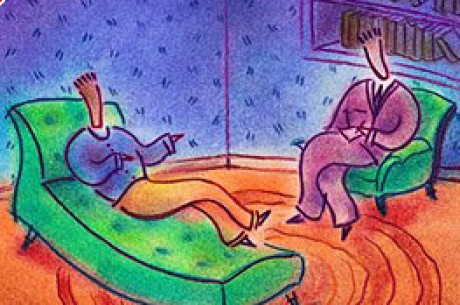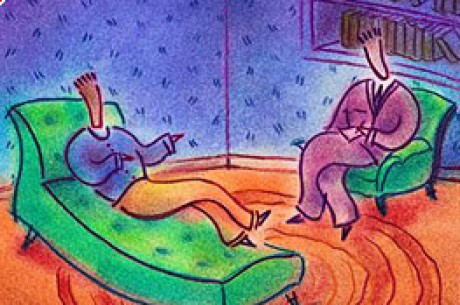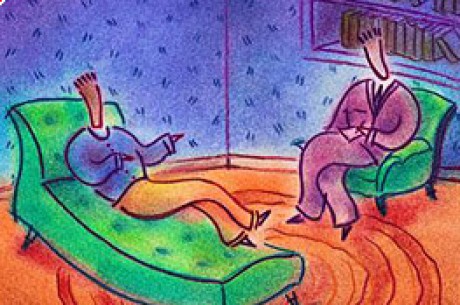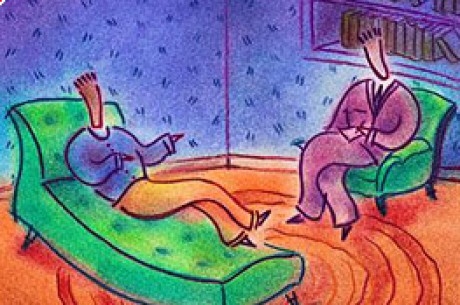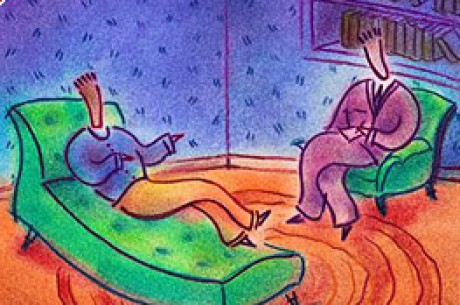Poker and the Law - What Defines a Home Game?

This will be a regular column devoted to educating players about the law of poker online, in casinos, in home games, and in cardrooms of . . . well. . . questionable legality.
It will include the occasional article about developing law in internet poker, as well as articles on the law applying to home games and card rooms in various jurisdictions, and how those laws are being enforced by various authorities. Readers are encouraged to submit their questions by e mail to [email protected] on any aspect of the law and poker or gambling, and those questions will be addressed in future articles.
Those who run home games and card rooms in the United States often are confused about the exact laws that apply to such a game. There is no one answer. Those laws vary from State to State, and though many are similar, some States have bizarre twists and oddities in their gambling laws.
Pokernews.com received the following e mail from a reader in Alaska:
We have home games at our house in Alaska. People come from far away, so sometimes two rooms are full of players. Is it legal to play two tables at one time in Alaska?
Kenny
Promoting Even Social Gambling is a Crime in Alaska
I got bad news and not-quite-so-bad news for you, Kenny. The number of tables really doesn't have anything to do with whether or not your game is legal. Alaska is one of the few U.S. States that criminally punishes the promotion of even social gambling. Thus, whether you have one table, two tables, or ten tables, you are arguably in violation of Alaska law.
Alaska Statute A♠ 11.66.280 defines gambling as:
2) "gambling" means that a person stakes or risks something of value upon the outcome of a contest of chance or a future contingent event not under the person's control or influence, upon an agreement or understanding that that person or someone else will receive something of value in the event of a certain outcome; "gambling" does not include
(A) bona fide business transactions valid under the law of contracts for the purchase or sale at a future date of securities or commodities and agreements to compensate for loss caused by the happening of chance, including contracts of indemnity or guaranty and life, health, or accident insurance;
(B) playing an amusement device that
(I) confers only an immediate right of replay not exchangeable for something of value other than the privilege of immediate replay; and
(ii) does not contain a method or device by which the privilege of immediate replay may be cancelled or revoked; or
(iii) an activity authorized by the Department of Revenue under AS 05.15 [dealing with charitable organizations].
The same chapter defines a contest of chance:
(1) "contest of chance" means a contest, game, gaming scheme, or gaming device in which the outcome depends in a material degree upon an element of chance, notwithstanding that the skill of the contestants may also be a factor;
This definition obviously is intended to include poker. Even though poker includes a skill factor - most would even say that skill is the most important factor - nevertheless, anyone who has ever been rivered after all the money went in can tell you that the outcome of a poker hand depends to a material degree on an element of chance.
"Social Gambling" is a Defense to Prosecution for the Players
Like most States, Alaska defines a "social game."
(9) "social game" means gambling in a home where no house player, house bank, or house odds exist and where there is no house income from the operation of the game
AS 11.66.280.
But the difference between Alaska and most States, unfortunately, is what they do with that definition. The Code makes it illegal to engage in unlawful gambling. (Unlawful gambling is gambling that is not specifically authorized by law. AS 11.66.280(11).)
(A) A person commits the offense of gambling if the person engages in unlawful gambling.
(B) It is an affirmative defense to a prosecution under this section that the defendant was a player in a social game.
(C) Gambling is a violation for the first offense. Gambling is a class B misdemeanor for the second and each subsequent offense.
AS 11.66.200.
All right, it is illegal to engage in gambling, but the players have an affirmative defense to that crime if they were playing in a social game. So what is an affirmative defense?
(2) "affirmative defense" means that
(A) some evidence must be admitted which places in issue the defense; and
(B) the defendant has the burden of establishing the defense by a preponderance of the evidence.
AS 11.81.900(b).
Therefore, if the player can establish by a preponderance of the evidence (that is, more likely than not), including his own testimony or the testimony of others playing in the game, that the game was a "social game," he gets a walk. But (and this is where it gets tricky) there was still gambling going on. It's just that the player in the game cannot be punished for that gambling. So what about the guy running the game?
Promotion of Gambling Under Alaska Law
What does it mean to "promote" gambling? Let's go back to our handy definitions section:
(8) "promoting gambling" means that a person, acting other than as a player, engages in conduct that materially aids any form of gambling [emphasis mine];conduct of this nature includes
(A) conduct directed toward the
(I) creation or establishment of the particular gambling activity or acquisition or maintenance of premises, paraphernalia, equipment, or apparatus used in the gambling;
(ii) conduct of the playing phases of gambling; or
(iii) arrangement of the financial or recording phase of gambling or toward any other phase of its operation; or
(B) having control or right of control over premises that are used with the defendant's knowledge for purposes of gambling and permitting the gambling to occur or continue without making an effort to prevent its occurrence or continuation;
AS 11.66.280.
This section tells us that if any gambling is going on - whether or not the players have a defense to prosecution for that gambling - the owner of the premises or anyone who engaged in any other conduct that materially aided that gambling (such as the person who owns the cards and chips) is guilty of promoting gambling. And the consequences:
(a) A person commits the crime of promoting gambling in the second degree if the person promotes or profits from unlawful gambling.
(b) Promoting gambling in the second degree is a class A misdemeanor.
AS 11.66.220.
The section does not say that you must both promote and profit from unlawful gambling to be found guilty; it says that you must do one or the other. And the fact that the players may have an affirmative defense to prosecution does not mean that the gambling itself is not unlawful - remember, unlawful means that it is not specifically authorized by law.
But how, you might very reasonably ask, is it possible that there is a law that allows people to socially gamble, (or at least, doesn't punish them for it) and yet that same law punishes the person running the game, or allowing the game to happen on his premises? Where are they supposed to socially gamble? The answer is that the law doesn't always make sense, and isn't always internally consistent. There is a long line of United States Supreme Court cases, for example, that allow the private possession of obscene materials, but that prohibit the sale or distribution (even for free) of those exact same materials. Similarly, many States make the private possession of a dildo or other device intended for sexual gratification legal, but make the sale or distribution of such items illegal. Where are people supposed to get such materials or devices? The lawmakers don't care. Not their problem. The Alaska gambling laws are just another example of an internally inconsistent legal system.
So it appears that under Alaska law, a person can be prosecuted for a class A misdemeanor, punishable by up to a year in jail, even for running a home game with no rake. The next question is whether, as a practical matter, that would happen.
Prosecutorial Discretion
There is a long-standing doctrine in U.S. law called "prosecutorial discretion." That is, even though a statute might make a particular act criminal, and even though a prosecutor is sworn to uphold the law of his state, he typically has discretion in deciding whether or not to actually prosecute any given violation of the law. If a prosecutor decided (for some unknown reason) not to prosecute a known serial killer in his jurisdiction, no one could make him. He would, of course, be answerable to the voters in his constituency at the next election, or otherwise removable from office under State law, but he nevertheless has discretion to take that chance, and refuse to prosecute any given violation of the law.
Now typically a prosecutor is not going to refuse to prosecute a serial killer, if for no other reason than the political implications of such a mad act. But in closer cases, prosecutorial discretion is a very real factor. The no-rake home game is exactly such a case. While the exact language used by the Alaska legislature might allow the prosecution and conviction of a person running a no-rake home game, a reasonable prosecutor might ask himself a couple of questions before proceeding with such a prosecution. First, is this really the type of evil that the legislature meant to prevent? And even if it is, is this really the type of prosecution that my local taxpayers want me to spend their money on? And finally, is anyone really going to care whether I give this guy a walk? If the prosecutor answers "no" to any of those questions, he may very well decide not to prosecute the case. Or, for that matter, the local police may decide not to investigate it in the first place. But what you have to keep in mind is, they can if they want to, and the prosecutor can prosecute it if he wants to. And if there is, for example, pressure from a local church group or an irate and influential neighbor, it is possible that they will want to.
The Rake
But what if your game does take a rake or charge seat time? Now we get much closer to the "evil" that the legislature sought to prevent. Now the players no longer have the social game defense, and each can be charged with gambling and punished by a fine for the first offense, and up to 90 days in jail for a second or subsequent offense. And remember, the State doesn't have to prove that you were taking a rake. Instead, once the State has proved that there was gambling going on, the burden is on the players to establish by a preponderance of the evidence that the gambling was a social game. Here, the only way they could do this would be to commit perjury, a much more serious offense.
Furthermore, a prosecutor is much less likely to let the person running such a game get away with it. After all, there is no question that the legislature - and probably a good chunk of the prosecutor's constituents - take a much dimmer view of someone making a profit from other peoples' gambling. If they didn't, they'd legalize casinos and tax the hell out of them. (I know, I know, they have Indian casinos. But that's an Appaloosa of a different color, and besides, who doesn't?) So if your home game takes a rake, charges seat time, or otherwise receives any income from the game, regardless of the number of players, I would be a lot more concerned about possible criminal liability. Keep in mind that this is an offense punishable by up to a year in jail for the person running the game.
Felony Gambling Promotion:
The Gambling "Enterprise"
Okay, I told you at the beginning of the article that I had bad news and not-quite-so-bad news. The bad news was that if you're taking a rake, you're certainly in violation of Alaska criminal law. The not-quite-so-bad news was that, even if you're not taking a rake, you're probably still in violation of Alaska criminal law, but you may not be prosecuted for it. I forgot to tell you that I also have really bad news. The really bad news is that, if you've been doing this for a while, you may be a felon.
(a) A person commits the crime of promoting gambling in the first degree if the person promotes or profits from an unlawful gambling enterprise.
(b) Promoting gambling in the first degree is a class C felony.
AS 11.66.210.
(4) "gambling enterprise" means a gambling business that
(A) includes five or more persons who conduct, finance, manage, supervise, direct, or own all or part of the business;
(B) has been or remains in substantially continuous operation for a period in excess of 30 days or has a gross income of $2,000 or more in any single day; and
(C) is not a municipality or a qualified organization under AS 05.15.690, except that, for purposes of this paragraph, no application for a license under AS 05.15 is required to be considered a qualified organization;
AS 11.66.280.
AS 05.15.690 deals with charitable and non-profit organizations, so we can be reasonably sure you don't qualify under that section. Thus, if there are at least five people involved in running or ownership of this game, and if it has either made $2,000.00 gross in one day, or been in operation on a "substantially continuous" basis for more than thirty days, the owners or operators could be charged with a Class C felony, punishable by up to five years in prison. The statute doesn't define "substantially continuous," and therefore it would be up to a jury to decide whether the operation fit that term. But I can almost guarantee that such a finding would not require a showing of daily operation. Even every weekend might be sufficient. Also, it is at least arguable that dealers, waitresses, and security could be considered among the five people who "conduct. . . part of the business."
What Can I Do About It?
For starters, you can contact your State legislators and let them know that you want gambling, or at least poker, to be legalized in your State. You can find out who your State Representatives and Senators are, and send them an e mail, at www.legis.state.ak.us, or, if you already know their names, their e mail addresses are:
Let them know that you support legalized poker in your State. Poker is the fastest-growing pastime in the history of the world. The States that refuse to legalize it are missing out, not only on truckloads of tax revenue, but on all of the cash flow that is being taken from their own economies, and exported to other States or over the internet. Home games, with or without a rake, are making criminals out of otherwise law-abiding and productive citizens.
And besides, if an Alaskan frontiersman can't mush his way home after a long month of panning for gold or trapping bears or whatever else it is that y'all do for a living up there, and set up a friendly poker game in which he uses his superior skill to fleece his buddies out of their weekly paychecks, well, then I just don't know what this country is coming to.
DISCLAIMER:
John Fahle is an attorney licensed to practice law in Texas and various federal United States Courts. His general advice given in this column is neither intended as the practice of law in other jurisdictions, nor as a solicitation of clients in any particular case. The views expressed by Mr. Fahle in this column are intended as general information, and are general answers to specific questions. Such statements are intended only to make the reader aware of possible issues that could be involved in any given legal situation. Laws vary from jurisdiction to jurisdiction, and the application of any law is heavily dependent on the facts of a specific case. Therefore, you should not rely on the statements made in this column as legal advice in your own situation, but should instead seek out qualified legal counsel licensed in your jurisdiction, who can address the specific facts of your situation, and apply the specific laws of your jurisdiction. If you need a referral to a competent lawyer in your jurisdiction, you may contact John Fahle at [email protected], or by telephone at 210.212.7272.
Please visit our online poker room directory to see the best bonuses on the web!


